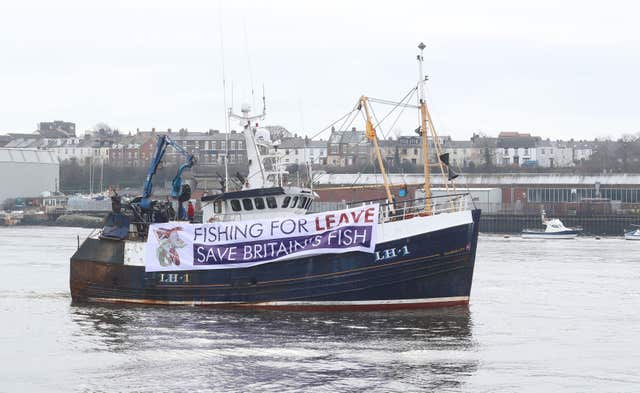
One of the architects of the Good Friday Agreement has issued a fresh warning about the potential impact of Brexit on the peace process.
George Mitchell, the US special envoy to Northern Ireland who chaired the negotiations for the 1998 agreement, urged the UK’s Prime Minister and Ireland’s Taoiseach to remember what is at stake in the Brexit talks.
He said resolving the problem of the post-Brexit border was important because it had been an “important factor” in reducing tensions between Northern Ireland and the Republic.
Senator George Mitchell says those who are concerned about Brexit in the UK are "using" the Good Friday Agreement as a threat #marr pic.twitter.com/UKdRDmtEXD
— The Andrew Marr Show (@MarrShow) April 8, 2018
Asked what his message would be to Theresa May and Leo Varadkar, he said: “What I do urge them is to recognise what’s at stake here.
“It’s the futures of their economies, it’s the possibility of resumption of conflict or of a reversion back to a time when nobody wants to go back to except for a very tiny fringe element on both sides.
“I think that means that they have to come up with reasonable and acceptable compromises.”
Asked about claims the Good Friday Agreement was now getting in the way of political progress in Northern Ireland, he told BBC’s Andrew Marr Show: “I don’t agree with that analysis.
“I think the people espousing that line are primarily concerned with the Brexit debate in the UK and are using the Northern Ireland issue as a part of that debate.”
The border will become the frontier between the EU and a non-member after Brexit, but both sides in the negotiations are committed to avoiding a “hard border” with infrastructure such as cameras or checkpoints.
Mr Mitchell said: “I hope they figure out a way to resolve it that maintains the border in the current status because that’s been an important factor in reducing the stereotyping or the demonisation that existed between Northern Ireland and Ireland before, when people who lived just a short distance from the border never crossed it.”
Negotiations in Brussels are set to continue this week and Ireland’s ambassador to the UK Adrian O’Neill said: “There is agreement all round between the EU and the UK that there will be no hard border on the island of Ireland and that includes any physical infrastructure.”
He told the Andrew Marr Show: “There are negotiations going on even this week in Brussels which will be addressing the ‘how’ and the modalities and so on.
“We need to work through that to get to the destination that we all want to achieve.”

One of the other sensitive issues facing Mrs May in the Brexit process is the future of the fishing industry amid claims of “betrayal” because the UK will remain bound by EU rules during the transition process until the end of 2020.
Protests were taking place at ports around the UK and Fishing for Leave spokesman Alan Hastings said: “Fishermen are sickened and enraged that our government has capitulated to obeying all EU law after Brexit.”
Sinn Fein leader Mary Lou McDonald said Northern Ireland had not consented to Brexit.
“The British Government is playing fast and loose with the hard-won progress built over 20 years.
“The Good Friday Agreement is not a historic artefact. It is not to be discarded by Tory Brexiteers or a minority in the leadership of unionism.
“It is an agreement endorsed by the vast majority of the people of Ireland. It remains the basis for resolving the current crisis.
“It lays the foundation of a new Ireland which we must build together.”


Comments: Our rules
We want our comments to be a lively and valuable part of our community - a place where readers can debate and engage with the most important local issues. The ability to comment on our stories is a privilege, not a right, however, and that privilege may be withdrawn if it is abused or misused.
Please report any comments that break our rules.
Read the rules here